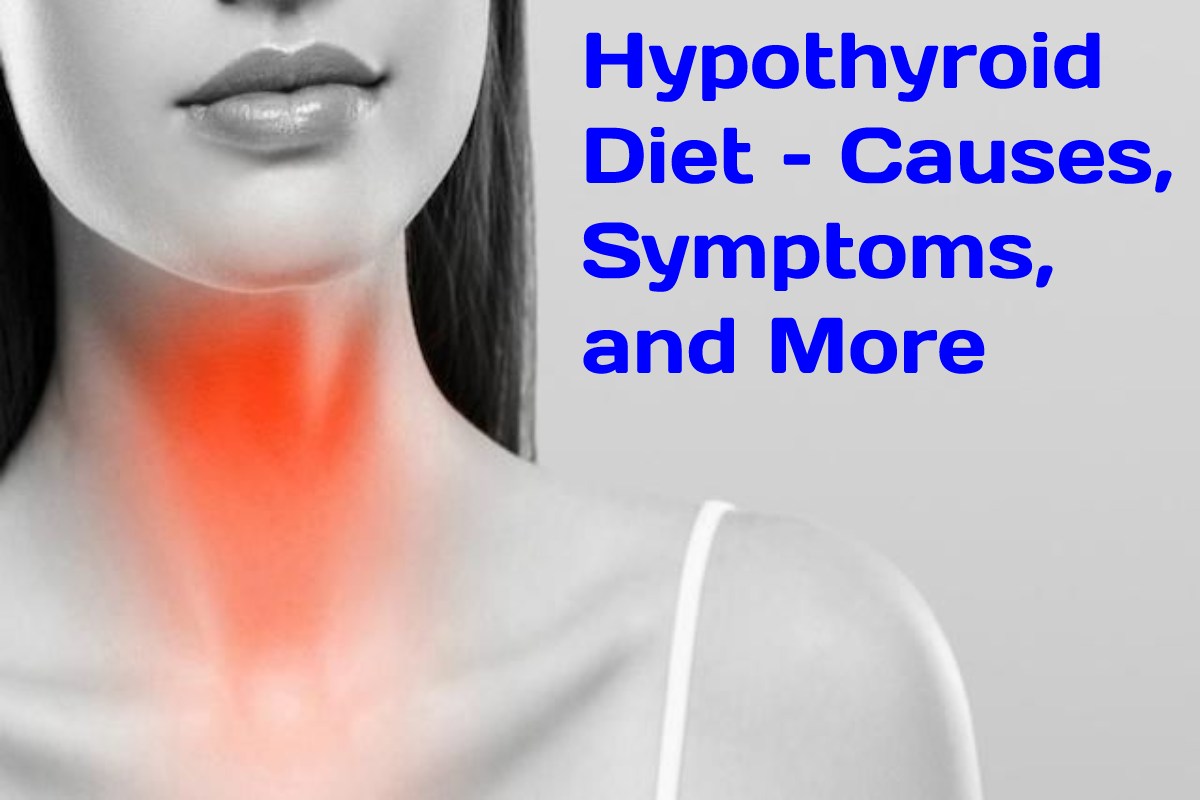Table of Contents
Hypothyroid Diet
A hypothyroid diet consists of eating foods rich in iodine, selenium, zinc, and copper, which are essential nutrients for the appropriate working of the thyroid gland and are initiated in fish, seafood, whole grains, eggs, and Dry fruits.
Hypothyroidism is one of the most communal hormone diseases. It is characterised by decreased thyroid activity, which causes fewer hormones to produce than is necessary for perfect body functioning. Hypothyroidism can cause symptoms such as increased weight without apparent cause, constipation, dry skin, fragile and brittle nails, and cramps, among others.
It is vital to recollect that the primary treatment method for thyroid diseases, in general, is the use of specific medications prescribed by the endocrinologist to control symptoms.

Causes for Hypothyroid
The most common causes of hypothyroidism are:
- Genetic causes, a congenital disability.
- Chronic iodine deficiency in the diet.
- cancer radiotherapy.
- Treatment with lithium or other drugs
- Sheehan syndrome during pregnancy.
- viral infections
- An immune system occurrence in the thyroid gland
Symptoms for Hypothyroid
The most common symptoms of hypothyroidism are :
- Weight gain.
- Tiredness and hypersensitivity.
- Constipation and hard stools.
- Cold intolerance.
- Heavy menstrual flow.
- Coarse facial expressions, hoarse voice, and slow speech.
- Drooping eyelids, bulging eyes.
- Thin, coarse, and dry hair
- Rough, thick, dry, and scaly skin.
- Brittle and weak nails.
Foods that regulate the Thyroid
Essential nutrients and foods to help regulate the Thyroid naturally in cases of hypothyroidism are:
Iodine
Iodine is vital for producing thyroid hormone, so the lack of this mineral in the diet can cause problems such as hypothyroidism and goitre, an increase in the thyroid gland size.
The recommended minimum intake of iodine for adults is 75 ug per day, with a maximum of 1,100 ug per day. The primary sources of this mineral are seafood, saltwater fish, seaweed, eggs, cereals, milk and dairy products, and iodised table salt. For example, the consumption of 75 g of hake already covers the daily iodine recommendations for an adult. See a list of foods rich in iodine.
Selenium
Selenium is found in large quantities in the Thyroid, as it helps produce these hormones. In addition to that, this mineral has antioxidant properties, which are essential for strengthening the immune system.
Selenium deficiency can contribute to goiter and other thyroid problems. The recommendation for selenium intake is 55 ug per day in adults, and the primary sources of this mineral are eggs, meat, seafood, mushrooms, Brazil nuts, and cereals. For example, consuming 1 Pará chestnut daily covers the selenium recommendations for an adult.
Zinc
Zinc is another essential mineral for the production of thyroid hormone. Some studies show that a lack of this nutrient in the body can worsen hypothyroidism in people who already have the disease. Likewise, zinc deficiency can also contribute to the development of hypothyroidism.
The recommended zinc intake in adults is 15 mg per day, mainly in foods such as chestnuts, walnuts, almonds, pumpkin seeds, oysters, red meat, chicken, beans, and cereals. See a complete list of foods rich in zinc.
Copper
It is a mineral with an antioxidant function and is necessary for maintaining the activity of thyroid hormones and the metabolism of fats. This mineral is responsible for the functioning of the thyroid gland and stimulates the production of thyroid hormones.
The recommendation for copper in adults is 900 ug per day, widely initiated in animal-origin products such as shellfish, organ meats, meat, nuts, cereals, and legumes.
Diet to maintain weight
In patients with hypothyroidism, weight loss is more complex but not impossible, “following healthy habits in terms of eating and physical exercise. Aimed at keeping the metabolism active, added to optimal medical control,” says Marengo. According to experts consulted, in these patients, it is not a question of going on a diet but of changing eating habits to guarantee a healthy and complete diet. Conveniently, there is a reduction in calories. This should not translate into restrictions since it is also necessary to ensure the correct intake of nutrients and minerals”, clarifies Eva Bautista, nutritionist at BluaU Sanitas.
The nutritionist recommends:
- Promote foods that help ensure proper production of thyroid hormones, that is, those that provide omega 3, antioxidants, iodine, selenium, zinc, and Vit D.
- Avoid the consumption of algae since its iodine content is so high that it could alter the thyroid gland.
- If soy or products containing it consumes, it is advisable to allow 4 hours between taking the medication and soy intake.
In Nieto’s view, in addition to these tips, ” it is essential to increase the consumption of foods rich in iodine. So which activate the production of thyroid hormones .”
Conclusion
When an individual is diagnosed with hypothyroidism, the ideal is to consult a nutritionist to be evaluated and make an individualised nutritional plan according to the person’s needs. Thus avoiding the weight gain that usually occurs.

